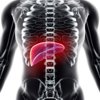Fritextsökning
Artiklar per år
Innehållstyper
-

The Covid pandemic accelerated the development of cancer vaccine
The Covid pandemic gave a major boost to the vaccine field. The Danish biotech company Expres2ion Biotechnologies, which is developing a vaccine against breast cancer, testifies to this.
-

Johnson & Johnson gör mångmiljardförvärv inom medicinteknik
Amerikanska läkemedelsjätten Johnson & Johnson bekräftar nu ett förvärv av medicinteknikbolaget Shockwave Medical. I förra veckan skrev Wall Street Journal att en affär var på gång enligt uppgifter till tidningen.
-

Förlikning om canceranklagelser mot storsäljande läkemedel
Det franska läkemedelsbolaget Sanofi har nått en principöverenskommelse i USA om cirka 4 000 av de fall där företaget stämts för att inte ha varnat patienter om att det numera indragna läkemedlet Zantac mot halsbränna kan framkalla cancer.
-

Ny chefredaktör på Läkartidningen
Åsa Uhlin har utsetts till ny chefredaktör på Läkartidningen efter avgående Pär Sandell.
-

Ny miljonsatsning på life science i Sverige
7,7 miljoner kronor ska nu satsas på ett projekt för att underlätta identifiering och produktion av läkemedel. Bridge Sweden är namnet på projektet och är ett samarbete mellan olika aktörer i Sverige inom life science.
-

Mef Nilbert – cancerutredare med helikoptersyn
Ett ben i kliniken, ett i forskningen. Så har det länge sett ut för Mef Nilbert, överläkare och professor i onkologi, som nyligen fick ett helt nytt uppdrag: att som särskild utredare ta fram en ny nationell cancerstrategi.
-

Anna Törner: ”Orphan Designation – the "petite robe noire" of drug development”
It is easy to cling to various regulatory incentives, like orphan designation, and other expedited pathways, without understanding what they truly mean or whether they are indeed right (or wrong) for the current project, Anna Törner writes in a column.
-

Specific proposals and targets top the universities’ desired priorities
What are the universities’ expectations for the update of the national life science strategy? Life Science Sweden posed the question to representatives from Karolinska Institutet and Sahlgrenska Academy.
-

Anna Törner: ”Orphan designation läkemedelsutvecklingens ’petite robe noire’”
Det är så lätt att klamra sig fast vid olika regulatoriska incitament, som orphan designation, utan att egentligen veta vad de innebär och på vilket sätt de kan vara rätt (eller fel), skriver Anna Törner i en krönika.
-

Första behandlingen mot vanlig leversjukdom godkänd i USA
Efter många år av utveckling har nu för första gången en behandling mot fettlever med leverskada godkänts av det amerikanska läkemedelsverket FDA.
-

Venom from the deathstalker carries radiopharmaceuticals to the brain
In order to target cancerous brain tumours with radionuclides, the problematic blood-brain barrier must first be crossed. Life Science Sweden has visited a KI researcher who is trialling an unusual approach ‒ using scorpion venom.
-

“Don’t postpone the transition to IVDR”
Operators who have not yet started to adapt to the requirements of the new EU IVDR regulation are running out of excuses. This is the opinion of Helena Dzojic, Head of Unit at the Swedish Medical Products Agency, who continues to persistently spread her
-

KI’s new super machine measures brain activity in real-time – “A very expensive hairdo”
Using brand-new, super-advanced equipment, researchers at Karolinska Institutet can now measure brain activity in real-time, with higher resolution than previously possible. “This opens up fantastic opportunities”, says brain researcher Daniel Lundqvist.
-

Danska life science-industrin står för rekordhög export
Den danska exporten av life science-produkter har ökat explosionsartat, med en tillväxt på 227 procent sedan 2008 och utgjorde 2023 så mycket som 19 procent av landets totala varuexport.
-

Rising interest in CRISPR treatments
Treatments using CRISPR technology are emerging as one of the hottest medical trends in the United States – and the FDA is doing its best to promote the development.
-

Astra Zeneca föll efter besvikelser i rapport
Läkemedelsjätten Astra Zeneca föll rejält på börsen på torsdagen efter ett något sämre resultat än väntat det fjärde kvartalet 2023. Samtidigt presenterar bolaget i sitt bokslut en optimistisk prognos för tillväxten i år.
-

Stark uppgång för Crispr-behandlingar
Behandlingar som använder gensaxen Crispr växer fram som en av de hetaste medicinska trenderna i USA – och läkemedelsmyndigheten FDA gör sitt bästa för att stödja den utvecklingen.
-

Anna Törner: “My quantified life”
“The expression ‘you can’t see the forest for the trees’ feels newly relevant in the context of wearables. One can easily get caught up in the idea that the more we measure, the more we know,” Anna Törner writes in a column.
-

Ny forskningsmetod: Ögat kan berätta hur din lever mår
Det sägs att ögonen är själens spegel. I framtiden kan de komma att avslöja mer än så – som exempelvis tillståndet hos din lever.
-

Failed to read the fine print – lost his life’s work
A celebrated CEO and co-founder of a pioneering lab company one moment – the next, fired, kicked out and written out of the company’s history. This is the story of a Swedish entrepreneur who was going to raise US venture capital to strengthen his company but lost his life’s work instead.
-

Ingrid Lönnstedt: Demystification of the power of a scientific study
”You surely do realize that even the smallest changes in study assumptions may influence the estimated sample size needed. And how is it even possible to guess the magnitude of the treatment effect before performing the study?” writes Ingrid Lönnstedt in a column.
-

Diagnostikbolag gör besparingar – ett 40-tal medarbetare berörs
Uppsalabolaget Q-linea aviserar ett sparprogram som ska sänka kostnaderna med 50 miljoner per år. Framförallt drabbas företagets utvecklingsavdelningar.
-

”Information security must become part of the Swedish life science strategy”
Sweden needs knowledge security to stand strong in the global competition, writes Björn Ursing in an opinion article.
-

Unexpected study results on testosterone – no reduction in fracture risk
Testosterone treatment is known to increase bone density and bone quality. However, a study now suggests that supplementation with the male sex hormone does not reduce the risk of fractures, but rather increases it. The researchers behind the study were surprised by this result.